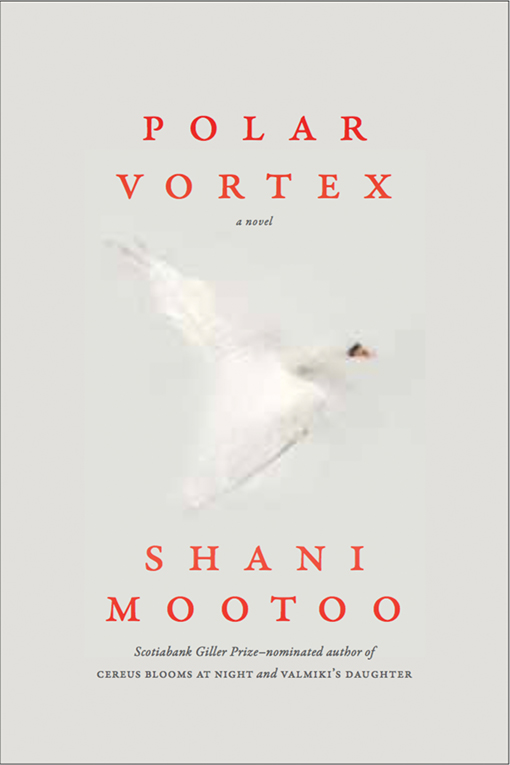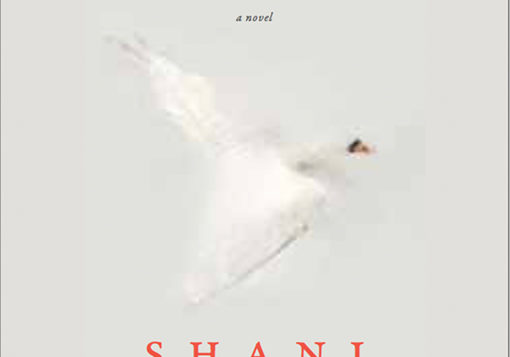 POLAR VORTEX
POLAR VORTEX
by Shani Mootoo
Akashic Books. 336 pages, $16.95
AS THE TITLE already hints, the central metaphor in this novel is based on the pathetic fallacy: in this case using the weather to represent the emotions of the central characters. But the trick works in Shani Mootoo’s Polar Vortex. The shocking difference between a freezing, ice-bound winter in rural Ontario one year and a lack of snow the next throws a lesbian couple off their guard, reflecting the instability of their relationship and the half truths upon which it is based.
Priya, the primary narrator, is a visual artist who immigrated permanently to Toronto after going there from the Caribbean on a student visa to attend university. Having been raised in a traditional family of Indian descent, she fled the prospect of a marriage that would have been more-or-less arranged by her parents. In Toronto, she finds a lesbian community and eventually meets Alex, a brilliant English-Canadian writer and academic. Shortly after they meet, the two women decide they were meant to be life partners.
From the beginning, however, each woman sees the other through a veil of wishful thinking and thus misses her truth. Priya explains: “Alex tells people it was my confidence, my unwavering sense of self, that attracted her to me. In the early days I’d tell her it was nothing but well-practiced posturing. Calm on the surface but paddling like hell beneath, I’d say, laughing. But she’d think I was being modest and this, too, she found attractive.”
Priya and Alex have a friendship with a neighboring lesbian couple who also seem to like privacy. Skye has a cottage where Alex spends much time writing. Skye’s partner spends months on the Canadian West Coast, thousands of miles away, where she has a job. Ironically, a love of solitude seems to draw the four women together, but questions are hanging in the air: have all of them fled the city for the same reasons? Are they each enjoying a kind of eco-feminist tranquility in communion with nature?
Alex and Skye ask Priya about her relationship with Prakash, why he plans to visit without his wife or children, and what he hopes to gain. Priya feels attacked and defends herself by insisting that Prakash knows she’s a lesbian and simply wants to “catch up.” Priya convinces herself that she has nothing to hide because she was never romantically involved with Prakash.
In a section titled “The Visitor,” Alex takes over the narrative. She tells the reader: “Things that had once intrigued me about my lover of the last six years now confound me. I used to be able to take it in stride that I couldn’t guess Priya’s next move. It frustrates me now.” Listening to Priya and Prakash, Alex feels like an outsider in her own kitchen. Her exclusion from the immigrant experience is compounded by Priya’s lack of interest in Alex’s historical research, including her refusal to accompany Alex to scholarly and literary events.
The last section brings the tension to a boil. The action is dramatic, but it could only be surprising to someone who hasn’t noticed the accumulation of clues. There is violence and betrayal, but the characters are so sympathetically drawn that no one emerges as a villain or a stereotype.
The author shows her keen ear for Canadian speech in various registers, and the structuring of the plot as a series of scenes gives this novel a steady momentum. Polar Vortex is a cautionary tale for adults.
Jean Roberta is a widely published writer based in Regina, Canada.






